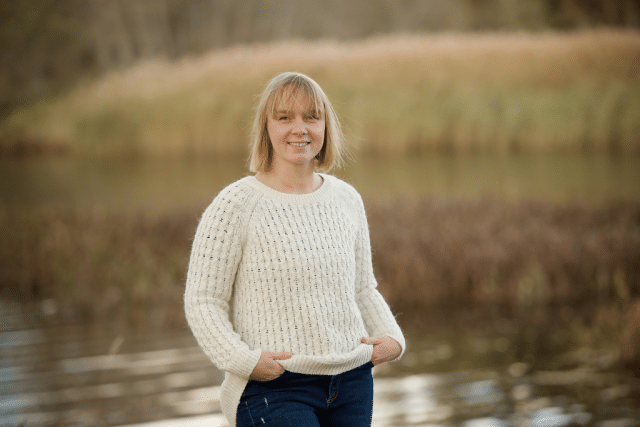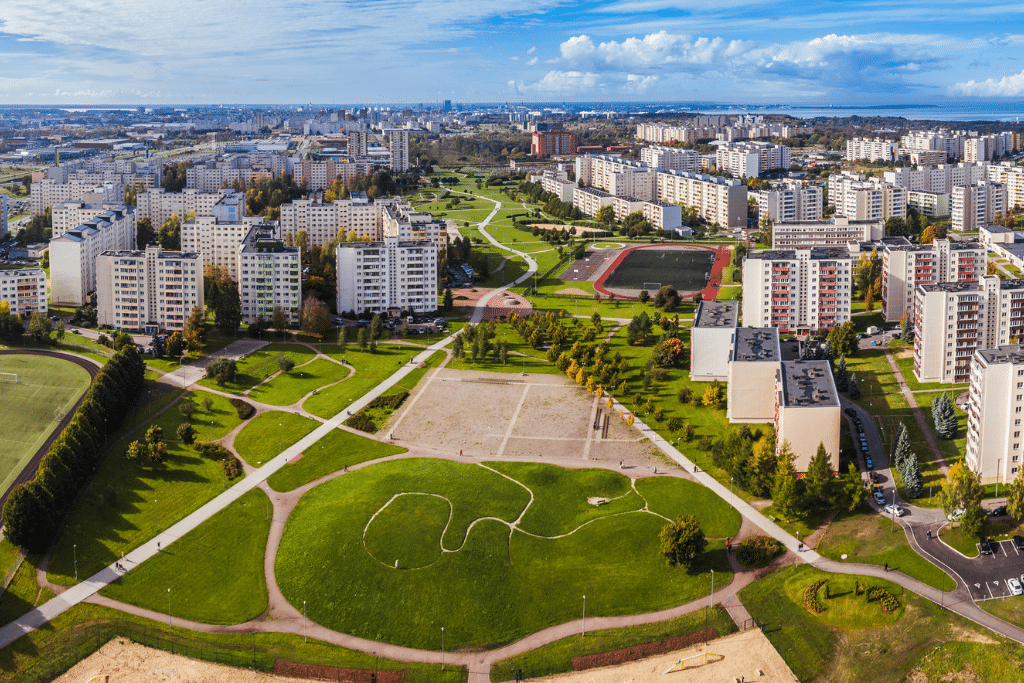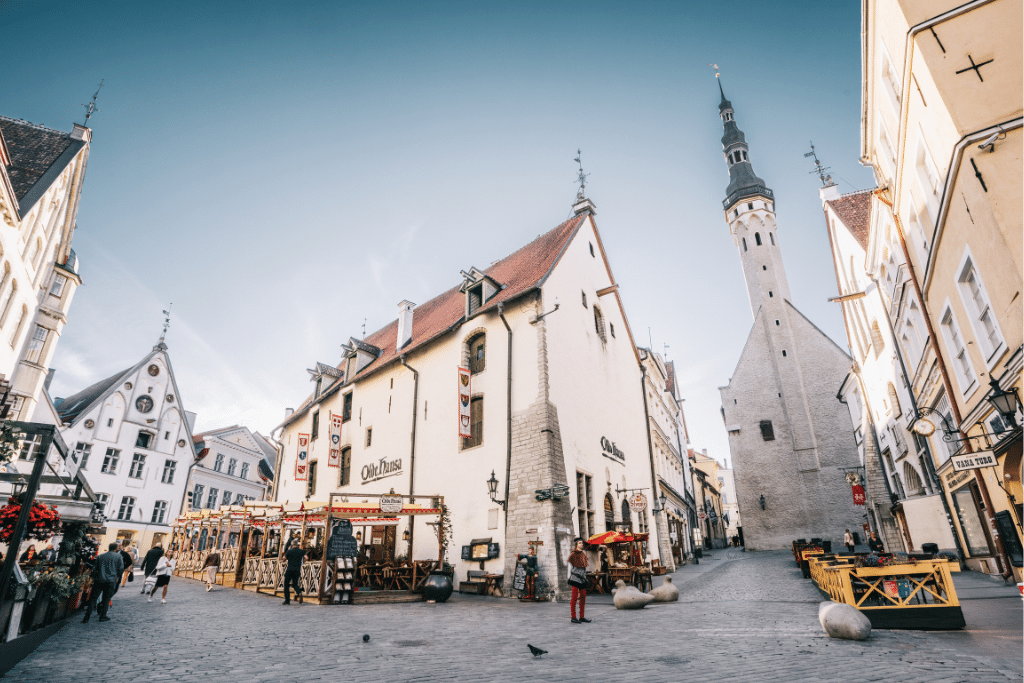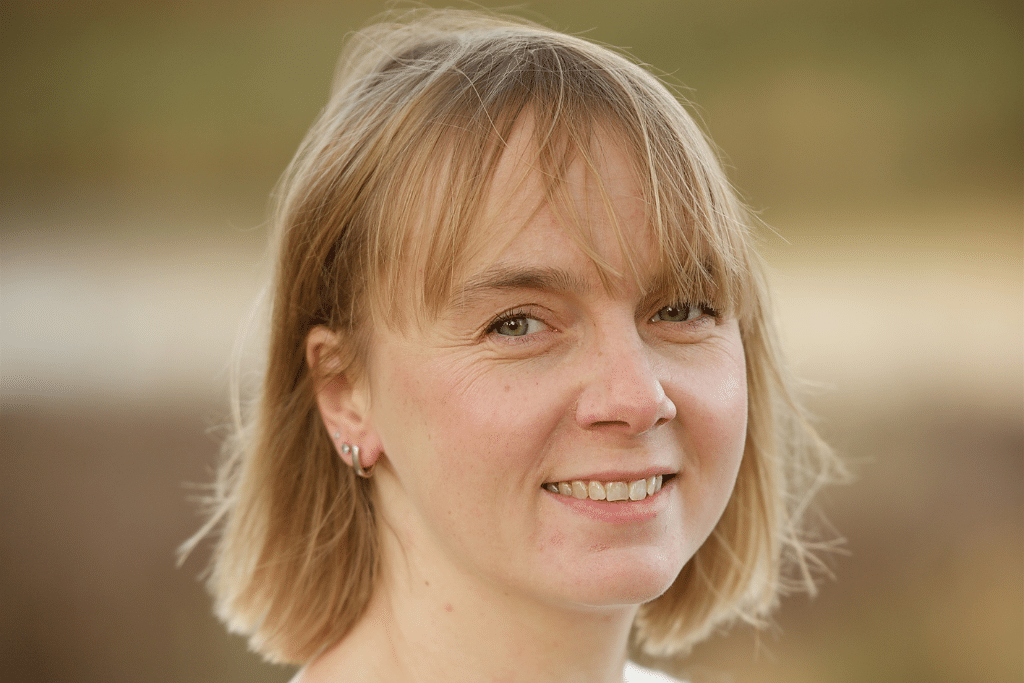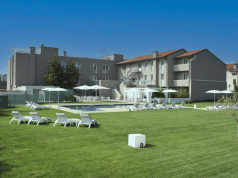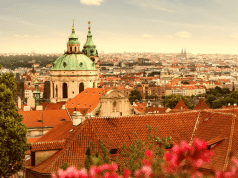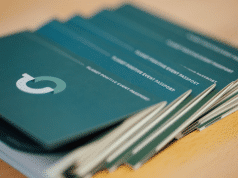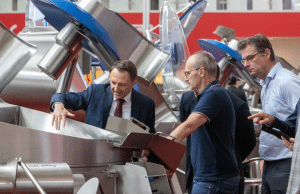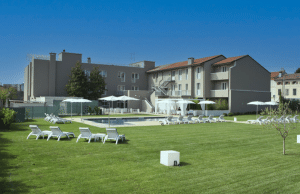TALLINN – THE MOST SUSTAINABLE BALTIC CITY
Kongres Magazine talked to Made Pandis-Raie, Business Tourism Project Manager at Tallinn Convention Bureau on Tallinn’s approach to decarbonising the meetings industry, how Estonia is tackling climate change and why it is important to standardise environmental certificates.
Q1: What would be your answer to someone claiming that the environmental changes we are witnessing are not a consequence of human actions?
We live in an age where everyone is encouraged to do their own research and preach their own truth. For me, arguing on the matter of what’s affecting our changing climate is somewhat of a wasted effort. Of course, knowing the causes is important, but shouldn’t we all just aim our energy towards reducing our individual and collective footprint because it’s the right thing to do? No one can argue that consuming less and wiser is guaranteed to have a positive impact on the environment.
Q2: What does the slogan “think global, act local” mean to you?
Sometimes I feel that “act both locally and globally” might be the real slogan we should be talking about. But hasn’t the current pandemic been just a perfect example of the “think global, act local” mindset? Each and every one of us has been impacted by it globally, but all we can do is take personal responsibility for the benefit of society. Even if this responsibility means that the most you can do is to stay at home.
The same can be applied to the environmental issues – we all live on Earth with its limited resources. Therefore, it is up to each of us how we use those resources in a way that doesn’t come at the expense of others and future generations. My personal opinion is that we and our predecessors have not been excelling in that respect for at least the past 100 years or more.
Q3: What do you see as the greatest environmental issue in your country and city?
For Estonia, the “poster issue” has been oil shale mining and consumption (for energy mostly). This has left north-eastern Estonia with water-filled mines (both on ground and underground), limestone remains, semi-coke heaps and toxic wastes. While closing down and reinventing the oil shale industry and its legacy is underway, it will take years to shut it all down and reversing the environmental damage is a job that will be left to our children and theirs.
Also, urbanisation can be considered an issue in Estonia. 40% of the population (which is 1.33 million) lives in the capital Tallinn or its surroundings. This trend is mostly due to work and studying but also the ease of access to public services, culture, international travel etc. It has led to Tallinn’s ever-growing flow of cars and needs for housing. Tallinn’s urban development is facing the challenge of creating a balanced living environment for its citizens. Hopefully, the city will turn its focus from enabling cars, paving roads/parking lots and allowing high rising apartment buildings towards becoming car-free, pedestrian-friendly and tipped with greenery. In addition to mere practical reasons for preventing heat islands and asphalt rivers, this change would not go unnoticed among the citizens and visitors alike.
And Tallinn does have a great starting point with having 60 parks, popularising urban beekeeping and a dedicated pollinator highway through six districts. It’s not uncommon to meet rabbits, roe deer, frogs or woodpeckers within the city. Tallinn’s air quality ranks fourth amongst 323 European cities.
Q4: Do you notice any differences regarding the sensibility of today’s generation and their approach towards a green action compared to pre-millennial generations?
Did you know that the road to our independence began during the 1980s with an environmental campaign “Phosphorite War”? It was a movement against phosphorite mines that achieved its original aim but also strengthened the nationalist movement which led to the restoration of Estonian independence in 1991. That is our parents’ generations service.
I believe that coming from the Soviet Union has done our environment an unexpected favour. During the times when nothing was ever available, our parents’ generation did not have the chance to consume at the same volumes as the rest of the western world did. The Soviet occupation did have its other (more sinister) issues that we still need to deal with (i.e. chemicals dumped into the Baltic Sea, over-fertilization etc.), but at least overconsuming on an individual level was not a problem.
In the past 30 years, we have made up for the lost time by being in the top five countries with the most annual waste per capita (behind Canada, Bulgaria and the USA and ahead of Finland). This is also largely due to oil shale mining, but still, it is a fact we cannot dismiss. I remember from my childhood that there was not much talk about household wastes or the need of sorting them, let alone about global environmental issues. My children, on the other hand, are all well informed on the whys and hows of the matter (they are 6, 4 and 2 at the moment). And they already seem to be more aware of the global world they live in. If nothing else, our children will grow up with better knowledge of environmental and global challenges, and therefore they will hopefully be more inclined to find solutions.
Q5: How environmentally aware is your organisation? Can you elaborate by giving an example?
We are working towards becoming more aware, and Tallinn is an active member of different international organisations and initiatives to further enhance our local efforts. Tallinn has received high recognition from the European Commission by being awarded the title of European Green Capital 2023. We are beyond proud and excited!
Tallinn’s development strategy for 2035 is strongly centred around sustainability. The vision is that by 2035, Tallinn will be a greener, more citizen-friendly city. People will move around mostly without the aid of a car, the public space will encourage people to spend more time outdoors, and everything you need on a daily basis will be within 15 minutes of your home.
At the moment we are taking the first steps, but we have potential, we have a plan, and we hope to do better. There is a real sense of change needed – most of all a change of mindset and the dismissal of old habits. Holding on to how things have always been done should be cast aside, as new solutions are urgently needed.
Q6: What we can measure, we can improve. Do you measure the carbon footprint of your events, and do you have a system of following environmental criteria in place?
At the moment, we do not measure events’ footprints yet. Not many destinations are capable of doing it, to be honest. But we are working on putting together guidelines for different events taking place in the city (meetings, sports- and cultural events). Meanwhile, we have gathered sustainable meeting ideas, venues and service providers on our website, and we are ready to consult meeting planners on the subject. From there, we can move further into establishing the best ways of measuring carbon footprint etc.
My hope is that sustainability will soon become a norm and an integral part of events. This will mean that our service providers and venues are certified, and their activity is already as sustainable as possible. This way, meeting planners do not need to put in special effort to make an event sustainable as the services they are consuming already are sustainable without asking.
Q7: What do you prioritise when it comes to achieving a carbon-neutral meeting industry?
Knowledge. First and foremost, raising knowledge. We as a destination can provide our support – information, training, consultation etc. Our job is to motivate our venues, service providers and meeting planners, so that they know what they need to do and that they do it. Also, inspiring meeting planners to look further and see how they can hold a sustainable event in Tallinn (in every sense of its meaning, including the social responsibility aspect). If the planners know what to ask for the suppliers will need to respond to their needs and adapt to the changes. From the practical side, it looks that we might need to consider offering financial support for certification in the tourism sector, just like Belfast is doing.
Q8: Measures for going green predominantly come from superiors. What can employees do to contribute to organising green events and making a greener industry themselves?
Employees can drive change from within. When I started at the Tallinn Convention Bureau in 2013, Meeli Jaaksoo pointed out that environmental issues and sustainability are the next big thing in the meeting industry. Ever since, we have exchanged ideas, forwarded articles, and have had discussions on the matter. We have touched the subject within our organisation and with our partners (venues, hotels, suppliers). And today, we are finally realizing those first important steps as an organisation. We have joined the GDS Index (we just had our first evaluation). We are working on city-wide guidelines that will not only cover the conference events, but all the events taking place in the city. And we are starting a dialogue on sustainability with local meeting industry partners.
Q9: The transport of attendees’ accounts for more than 70 per cent of carbon footprint. How do you tackle this in your organisation?
Tallinn has the unique possibility to offer free public transport for the delegates of international and locally important conferences. In addition, Tallinn offers free public transport for all its citizens as well. Tallinn’s public transport uses mostly electric trams, trains and trolleybuses or hybrid and gas-powered buses. Diesel-powered buses will disappear by 2025, and the entire public transport fleet will be electric by 2035.
In conclusion, once you arrive in Tallinn, you can choose to be sustainable and have your delegates take a tram from the airport to the city centre. And from the Port of Tallinn, you can easily walk to the centre (5 minutes distance). Additionally, Tallinn is such a compact city that once you have arrived, you can walk between venues and hotels, and there really is almost no need for wheeled transport. And for longer distances renting e-scooters, (e-)bicycles and other light electric vehicles are easily available.
To balance out all the goodness, the flight connections could always be better. We are well-connected to international hubs, but it would usually take two flights to arrive. Unfortunately, air travel leaves a significant footprint, and the more you have to fly, the bigger the issue. This is something that Tallinn Airport (ISO14001 certified and carbon neutral by 2035) is constantly working on, and hopefully, our connections will improve in time. The Port of Tallinn also pursues to keep its activities ecological footprint as low as possible. For example, the recently opened cruise terminal building uses marine heating.
Q10: In your opinion, when can an event be labelled as green or carbon-neutral? What advice would you give to those that would like to start changing the meetings industry into a sustainable one?
An event held in the Estonian woods, where delegates have arrived by bicycles or public transport, where everyone brings their own pencil and notebook, foldable chair/picnic blanket, tea thermos and a sandwich. It is possible to make it happen in Tallinn! But all kidding aside, probably when it has used the environmental filter to comb through each aspect of the event. Ideally, the planner has the power of choice. To make the right choice, the destination must have sustainable venues, hotels and suppliers.
Unfortunately, the change cannot come fast enough. And many times, the venues, hotels and suppliers are not to blame, as there just is not enough renewably produced energy available yet. And at the same time, everything is becoming more and more electricity-dependent. The infrastructure needs to come along faster. And that is why the events industry is so important – it propels development, bringing together smart people to find better solutions.
Q11: Can you give a good practice case from your company or your region?
Start now. If you don’t know where to start, ask for advice and help. We did. We asked the GDS Index team, and we couldn’t be more pleased. When you need to report, you instinctively want to do good. And once you have had your results, you want to do better. And this constant need for improvement is what drives us.
Q12: We are interested in how each one of us can contribute to a cleaner and righteous tomorrow daily? How do you do your part?
In my background, there is an environmental management degree and I have been consumed by the topic for a long time. I personally prefer to live by a credo of “change what you can, accept what you can’t and learn to know the difference”. Because I can only control my own actions and hope that this will lead to the greater good. So, I sort waste, turn off lights, drink tap water (in Estonia tap water = drinking water), try to consume more slow fashion, educate my children and choose wiser. I walk, ride a bicycle/longboard, and if I do drive, I do not use an electric car, but I reuse someone else’s preloved internal combustion engine car that seats eight people (so I can co-ride with my family and friends), and there is no need for a second car. As a form of therapy, I (and many others) love going to the forest for berry and mushroom picking – this is something I involve my children in as well, so that they know that nature provides. My parents and in-laws grow their own food, and my children can pick apples and strawberries with their own hands – life is good!
Q13: What advice do you have for someone wanting to start living sustainably?
It’s all about personal choices and sacrifices. Choose wiser and be ready to sacrifice. It’s a cold hard fact that we and the coming generations will not be able to live the same way our predecessors did. But hasn’t this always been the case – we have each had our own challenges to overcome. This is ours, and it will not go away – we have to change our individual ways.
A few examples of events with a sustainability focus that have been held in Tallinn:
– 4th Baltic Sea Conference on Literacy – Searching for a Common Language
– JCI World Congress 2019
– GreenEST Summit 2021
Surely there have been plenty of them, but we haven’t had the (human) capacity to map them out. We are planning to do better in the future.


